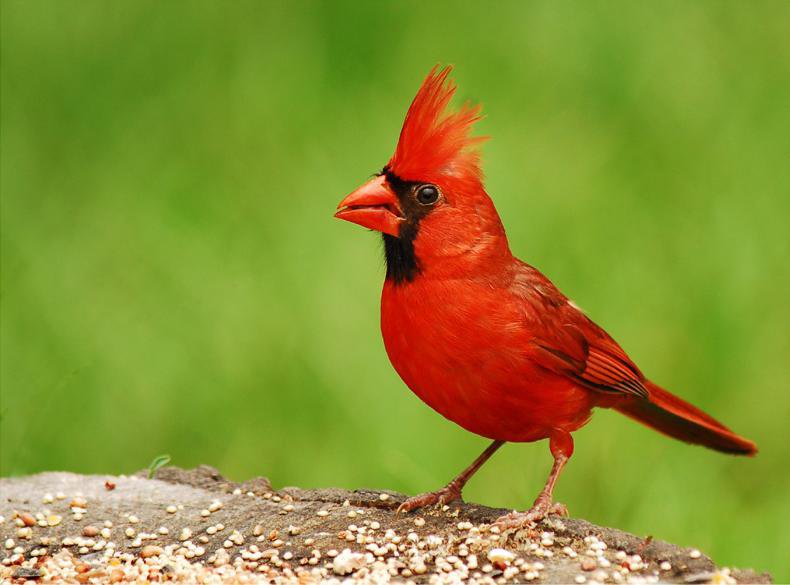It was no mistake, for instance, that, when Donald Trump finally turned his mind to the coming pandemic (rather than denying it) as the economy he had been bragging about for the previous three years began to crash, one of the first groups he genuinely worried about didn’t include you or me or even his base. It was America’s fossil-fuel industry. As global transportation ground down amid coronavirus panic and a wild oil price war between the Saudis and the Russians, those companies were being clobbered. And so he quickly reached out to them with both empathy and money – promising to buy tons of extra crude oil for the nation’s strategic petroleum reserve (“We’re going to fill it right to the top”) – unavailable to so many other endangered Americans. At that moment he made it perfectly clear that, in an unfolding crisis of the first order, all of us remain in a world run by arsonists led by the president of the United States.
So, a cardinal? Really? That’s what I want to focus on in a world which, as it grows hotter by the year, will only be ever more susceptible to pandemics, not to speak of staggering fires, flooding, extreme storms, and god knows what else. Honestly, given a country of closed schools, self-isolating adults, and the sick and the dying, on a planet that seems to be cracking open, in a country which, until recently, couldn’t test as many people for Covid-19 in a couple of months as South Korea could in – yes, this is not a misprint – a day, where’s my sense of proportion?

Think about it this way: as last year ended, Science magazine reported that, in North America, there were three billion fewer birds than in 1970; in other words, almost one out of every three birds on this continent is now gone. As Carl Zimmer of the New York Times put it, “The skies are emptying out.” Among them, warblers have taken one of the heaviest hits – there are an estimated 617 million fewer of them – as well as birds more generally that migrate up the East Coast (and so have a shot at landing in Central Park). Many are the causes, including habitat loss, pesticides, and even feral cats, but climate change is undoubtedly a factor as well.
The authors of the Audubon Society’s most recent national report, for instance, suggest that, “if Earth continues to warm according to current trends – rising 3 degrees Celsius (5.4 degrees Fahrenheit) by 2100 – more than two-thirds of North America’s bird species will be vulnerable to extinction due to range loss.”
Extinction. Take that word in. They’ll be gone. No more. Fini.
That, by the way, is a global, not just a North American, reality, and such apocalyptic possibilities are hardly restricted to birds. Insects, for instance, are experiencing their own Armageddon and while – monarch butterflies (down 90% in the U.S. in the last 20 years) aside – we humans don’t tend to think of them as beauties, they are, among other things, key pollinators and crucial to food chains everywhere.
Or think about it this way: on Monday, March 8th, in my hometown, New York City, it was 20 degrees celsius and that was nothing. After all, on February 19th, in Central Park, the temperature had hit a record-breaking 25 degrees in the heart of winter, not just the highest for that day on record but for the month of February, historically speaking. At the time, we were passing through a “winter” in which essentially no snow had fallen. And that should have surprised no one. After all, January had started the year with a bang globally as the hottest January on record, which again should have surprised no one, since the last five years have been the warmest ever recorded on this planet (ditto the last 10 years and 19 of the last 20 years). Oh, and 2020 already has a 50% chance of being the warmest year yet.
PrintTom Engelhardt | Radio Free (2020-03-25T15:58:15+00:00) Nature is a comfort under lockdown. But what will be left for our children?. Retrieved from https://www.radiofree.org/2020/03/25/nature-is-a-comfort-under-lockdown-but-what-will-be-left-for-our-children/
Please log in to upload a file.
There are no updates yet.
Click the Upload button above to add an update.